Hafiz Saeed Seeks Release Amid War With India: Is Pakistan Choosing Terror Over Peace Again?
Noopur Kumari | May 09, 2025, 16:00 IST

( Image credit : Times Life Bureau )
What if the man who masterminded the 26/11 Mumbai attacks was about to walk free, right when India stands on the brink of war? In a shocking twist, Hafiz Saeed has filed a petition for release in Pakistan. Is this legal drama just the surface of a deeper, darker strategy? This hard-hitting article uncovers betrayal, psychological warfare, and the chilling message behind Pakistan’s latest move. Truth meets terror, read before it's too late.
The people of a bleeding nation want justice, closure, and hope. However, what would happen if the adversary you once apprehended continued to live freely under the pretence of the law during the height of national sorrow and patriotic fervor? While your warriors are giving their lives to defend the nation, what if the man responsible for the horror of 26/11—the very face of terror—was knocking on the doors of freedom? Even as India and Pakistan teeter on the brink of war, Hafiz Saeed, the mastermind of the Mumbai attacks, is seeking parole through the Lahore High Court in a startling revelation that seems like a slap to every Indian heart. Is this just a lawful action, or is there something darker and more deliberate going on here?
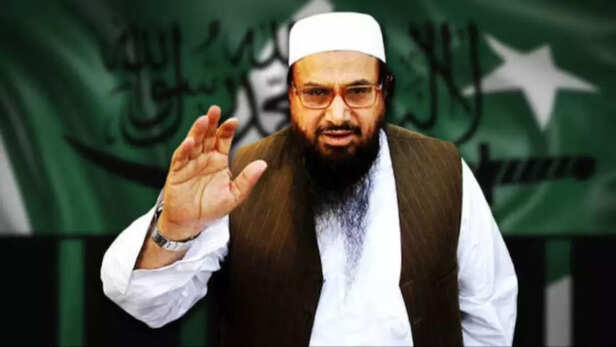
His name echoes the cries of those who perished at CST, the Taj, and Leopold Cafe, making him more than simply another terrorist. India's spirit bears the scar of Hafiz Saeed. 166 innocent people were killed in the 2008 Mumbai terror attacks as a result of his ideological poisoning as the founder of Lashkar-e-Taiba. They were mothers, fathers, kids, visitors, and police officers—they weren't just numbers. His name reopens wounds that never fully healed each time it appears. The idea of his release now feels like a betrayal, not only by Pakistan but also by mankind as a whole, amid tensions so high that war seems certain.
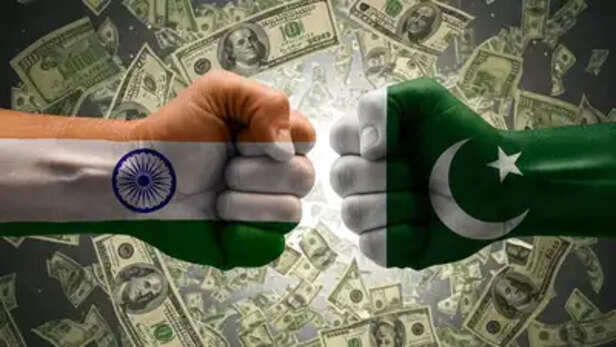
This is not an accident. Saeed's request is made during a growing tension, not during a time of calm. While Operation Sindoor saw retaliatory airstrikes deep inside Pakistan, Indian soldiers recently stopped Pakistani strikes in J&K and Punjab. In light of this, Saeed's court plea appears to be more of a calculated move to give terrorist organizations greater confidence than it is a statement of justice. The statement reads, "We still protect our own." Additionally, it requests that we, the victims, and the world forget. Can we, though? Shall we?
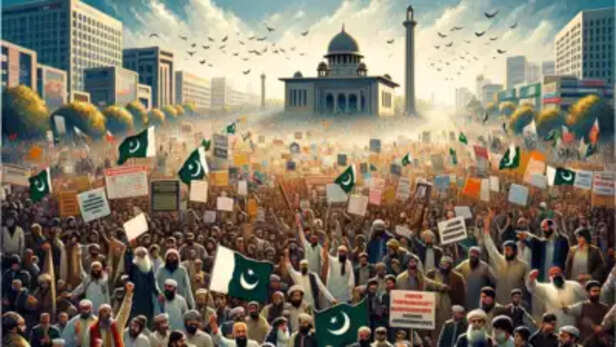
For years, speculation has surrounded Pakistan’s handling of Hafiz Saeed. While he’s been officially imprisoned at Kot Lakhpat Jail since 2019, credible sources hint at a different story. Behind the scenes, talk of a "safe house," luxurious privileges, and unrestricted movement casts doubt on the narrative of justice. This doesn’t resemble punishment—it looks more like protection. If these claims hold weight, then the recent court petition isn’t a step toward his release—it’s the final formality in a carefully staged performance. What the world sees as legal action might just be the closing act of a long-running facade.
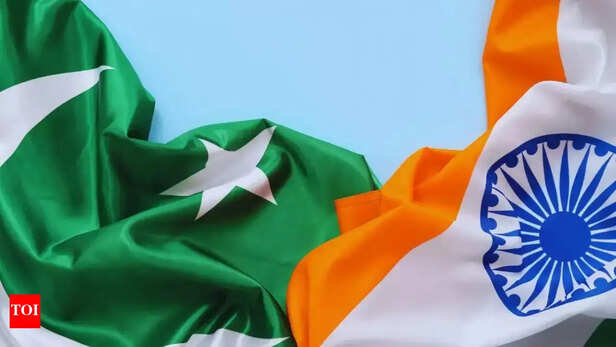
Just weeks ago, 26 innocent lives were lost in a brutal terrorist attack in Pahalgam—many were simply tourists, enjoying a brief escape. Families were shattered, soldiers martyred, and grief etched into the soul of the nation. Yet across the border, the man who fueled decades of jihad is petitioning for freedom. Can we, as a nation, stay silent? For every mother who lit a pyre, for every child who never returned, this is not justice—it’s betrayal. This isn’t just a legal proceeding in Pakistan; it’s a test of global conscience and humanity itself. How long must India endure in silence?
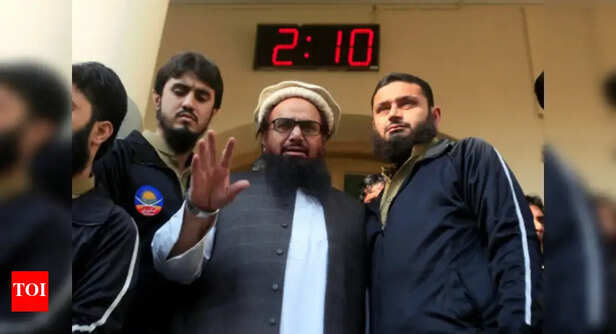
Security analysts warn that this petition isn’t just a legal manoeuvre—it’s a strategic psychological tactic. It’s meant to stir dormant terror networks, signal open defiance to the international community, and send a chilling message to India: that its suffering is secondary. Hafiz Saeed’s release would not just mark the freedom of a man—it would symbolize victory for extremist ideology. It would embolden radicals, destabilise diplomatic progress, and undermine years of anti-terror efforts. In essence, his freedom could serve as a rallying cry for chaos, a blow to justice, and a dangerous precedent for global security.
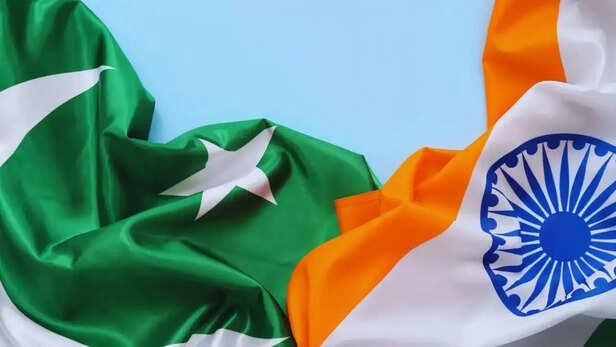
Pakistan has long balanced diplomacy and duplicity—appeasing Western allies with promises while nurturing extremism at home. Under FATF pressure, Hafiz Saeed was detained; under U.S. scrutiny, he was sentenced. But with global focus elsewhere and regional tensions rising, Pakistan’s true posture is becoming clearer. The recent shifts aren’t mere domestic choices—they signal deeper allegiances. As masks drop, the international community must ask: Is Pakistan acting like a responsible global player, or revealing itself as a rogue state taking advantage of global distraction?
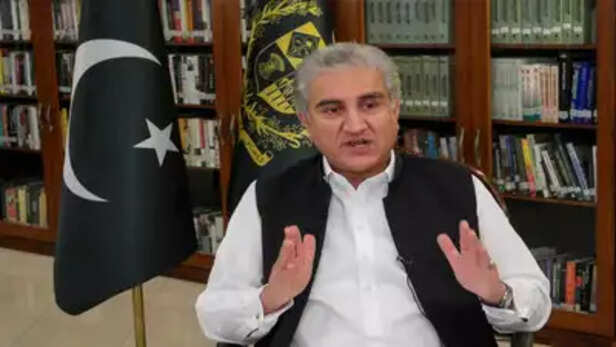
If someone like Hafiz Saeed can roam free despite masterminding one of the deadliest terror attacks, what message does that send to the victims of 26/11—or to the global fight against terrorism? It raises a haunting question: are we prepared to live in a world where justice can be sidestepped, where legal loopholes protect those with blood on their hands? This isn’t just India's burden—it’s a global call to reject impunity. When justice is denied, it’s not just the victims who suffer; it’s humanity that bleeds.
There’s a silence louder than war—it’s the silence of mothers who lost children, the silence of soldiers buried without answers, the silence of a nation that has repeatedly asked, pleaded, and demanded justice, only to be met with mockery. If Hafiz Saeed walks free, it’s not just a judicial decision—it’s a global failure. A failure to remember, a failure to protect, and a failure to stand with truth. As bombs fall and borders burn, we must remember: justice isn’t a luxury. It’s a duty. And if the world still believes in it, now is the time to speak. Loudly. Because the dead may not speak, but their silence deserves more than betrayal.
Explore the latest trends and tips in Health & Fitness, Travel, Life Hacks, Fashion & Beauty, and Relationships at Times Life!
1. The Man Behind the Bloodshed: Why Hafiz Saeed’s Name Hurts Every Indian

Hafiz Saeed’s
( Image credit : Times Life Bureau )
His name echoes the cries of those who perished at CST, the Taj, and Leopold Cafe, making him more than simply another terrorist. India's spirit bears the scar of Hafiz Saeed. 166 innocent people were killed in the 2008 Mumbai terror attacks as a result of his ideological poisoning as the founder of Lashkar-e-Taiba. They were mothers, fathers, kids, visitors, and police officers—they weren't just numbers. His name reopens wounds that never fully healed each time it appears. The idea of his release now feels like a betrayal, not only by Pakistan but also by mankind as a whole, amid tensions so high that war seems certain.
2. A Legal Petition or a Political Message? The Dark Timing of Saeed’s Move

Pakistani strikes in J&K
( Image credit : Times Life Bureau )
This is not an accident. Saeed's request is made during a growing tension, not during a time of calm. While Operation Sindoor saw retaliatory airstrikes deep inside Pakistan, Indian soldiers recently stopped Pakistani strikes in J&K and Punjab. In light of this, Saeed's court plea appears to be more of a calculated move to give terrorist organizations greater confidence than it is a statement of justice. The statement reads, "We still protect our own." Additionally, it requests that we, the victims, and the world forget. Can we, though? Shall we?
3. Safe Houses Over Jail Cells? The Illusion of Justice in Pakistan

Illusion of Justice in Pakistan
( Image credit : Times Life Bureau )
For years, speculation has surrounded Pakistan’s handling of Hafiz Saeed. While he’s been officially imprisoned at Kot Lakhpat Jail since 2019, credible sources hint at a different story. Behind the scenes, talk of a "safe house," luxurious privileges, and unrestricted movement casts doubt on the narrative of justice. This doesn’t resemble punishment—it looks more like protection. If these claims hold weight, then the recent court petition isn’t a step toward his release—it’s the final formality in a carefully staged performance. What the world sees as legal action might just be the closing act of a long-running facade.
4. India’s Rage: The Cost of Martyrdom and the Mockery of Justice

terrorist attack in Pahalgam
( Image credit : Times Life Bureau )
Just weeks ago, 26 innocent lives were lost in a brutal terrorist attack in Pahalgam—many were simply tourists, enjoying a brief escape. Families were shattered, soldiers martyred, and grief etched into the soul of the nation. Yet across the border, the man who fueled decades of jihad is petitioning for freedom. Can we, as a nation, stay silent? For every mother who lit a pyre, for every child who never returned, this is not justice—it’s betrayal. This isn’t just a legal proceeding in Pakistan; it’s a test of global conscience and humanity itself. How long must India endure in silence?
5. Psychological Warfare: Why Saeed’s Release is More Than Just a Legal Move

Saeed’s Release
( Image credit : Times Life Bureau )
Security analysts warn that this petition isn’t just a legal manoeuvre—it’s a strategic psychological tactic. It’s meant to stir dormant terror networks, signal open defiance to the international community, and send a chilling message to India: that its suffering is secondary. Hafiz Saeed’s release would not just mark the freedom of a man—it would symbolize victory for extremist ideology. It would embolden radicals, destabilise diplomatic progress, and undermine years of anti-terror efforts. In essence, his freedom could serve as a rallying cry for chaos, a blow to justice, and a dangerous precedent for global security.
6. Pakistan’s Two Faces: The Global Stage vs Ground Reality

Pakistan’s Two Faces
( Image credit : Times Life Bureau )
Pakistan has long balanced diplomacy and duplicity—appeasing Western allies with promises while nurturing extremism at home. Under FATF pressure, Hafiz Saeed was detained; under U.S. scrutiny, he was sentenced. But with global focus elsewhere and regional tensions rising, Pakistan’s true posture is becoming clearer. The recent shifts aren’t mere domestic choices—they signal deeper allegiances. As masks drop, the international community must ask: Is Pakistan acting like a responsible global player, or revealing itself as a rogue state taking advantage of global distraction?
7. The Moral Question: If Justice Fails, What Remains?

Pahalgam Justice
( Image credit : Times Life Bureau )
If someone like Hafiz Saeed can roam free despite masterminding one of the deadliest terror attacks, what message does that send to the victims of 26/11—or to the global fight against terrorism? It raises a haunting question: are we prepared to live in a world where justice can be sidestepped, where legal loopholes protect those with blood on their hands? This isn’t just India's burden—it’s a global call to reject impunity. When justice is denied, it’s not just the victims who suffer; it’s humanity that bleeds.
The Silence That Screams and the Responsibility That Remains
Explore the latest trends and tips in Health & Fitness, Travel, Life Hacks, Fashion & Beauty, and Relationships at Times Life!
